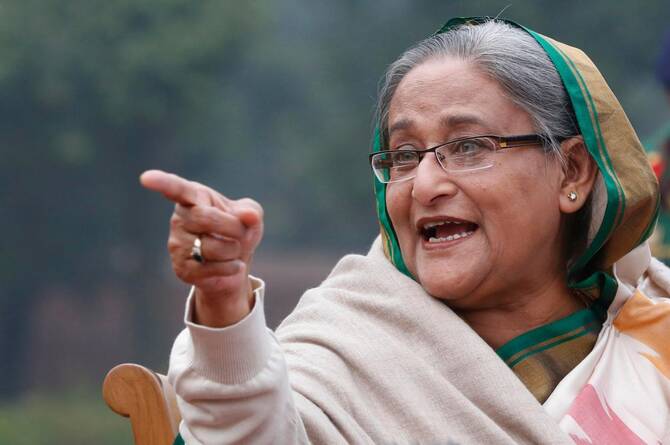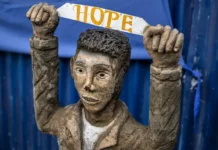Written by Were Kelly
A Bangladeshi tribunal has set November 17 as the date to deliver its verdict in the explosive case against former Prime Minister Sheikh Hasina, who stands accused of genocide and murder during the mass uprising that ended her 15-year rule last year.
The announcement has plunged the nation into a state of high alert, with security forces deployed across the capital, Dhaka, and the opposition Awami League calling for a nationwide shutdown in protest.
The International Crimes Tribunal-Bangladesh (ICT-BD), a domestic court, is trying Hasina and several of her close aides on five counts, including mass murder, for their alleged role in ordering a violent crackdown on the student-led protests that began in July 2024.
The unrest ultimately led to hundreds of deaths and the toppling of her government, forcing Hasina to flee the country in August 2024. An interim government under Nobel laureate Muhammad Yunus subsequently took charge and initiated the legal proceedings.
The trial has been conducted in absentia, with the prosecution demanding the death penalty.
Chief Prosecutor Tureen Afroz framed the case as a pivotal moment for accountability. “This trial is about justice for the hundreds of martyrs who died for democracy. No one is above the law,” she said.
The Awami League, however, has rejected the tribunal’s legitimacy. A party spokesperson declared, “This is a sham trial driven by political vengeance. The people of Bangladesh will never accept this judgement handed down by a kangaroo court.”
The United Nations has expressed concern, with a human rights office spokesperson stating, “We are monitoring the situation closely and call for a trial that meets the highest international standards of fairness and due process.”
The broader implications are immensely destabilising for Bangladesh. The country has been deeply polarised since the 2024 uprising, which claimed an estimated 1,500 lives.
The verdict risks triggering a fresh wave of violent street confrontations between Hasina’s loyalists and security forces. The international community, particularly India, is watching with apprehension, fearing a refugee crisis and further regional instability.
The tribunal itself is a repurposed version of one originally set up to try war crimes from the 1971 war of independence, and its use for contemporary political events has been highly controversial, with some legal experts suggesting an appeal to the International Criminal Court is likely.
Sources: The Hindu, Daily Star.



















